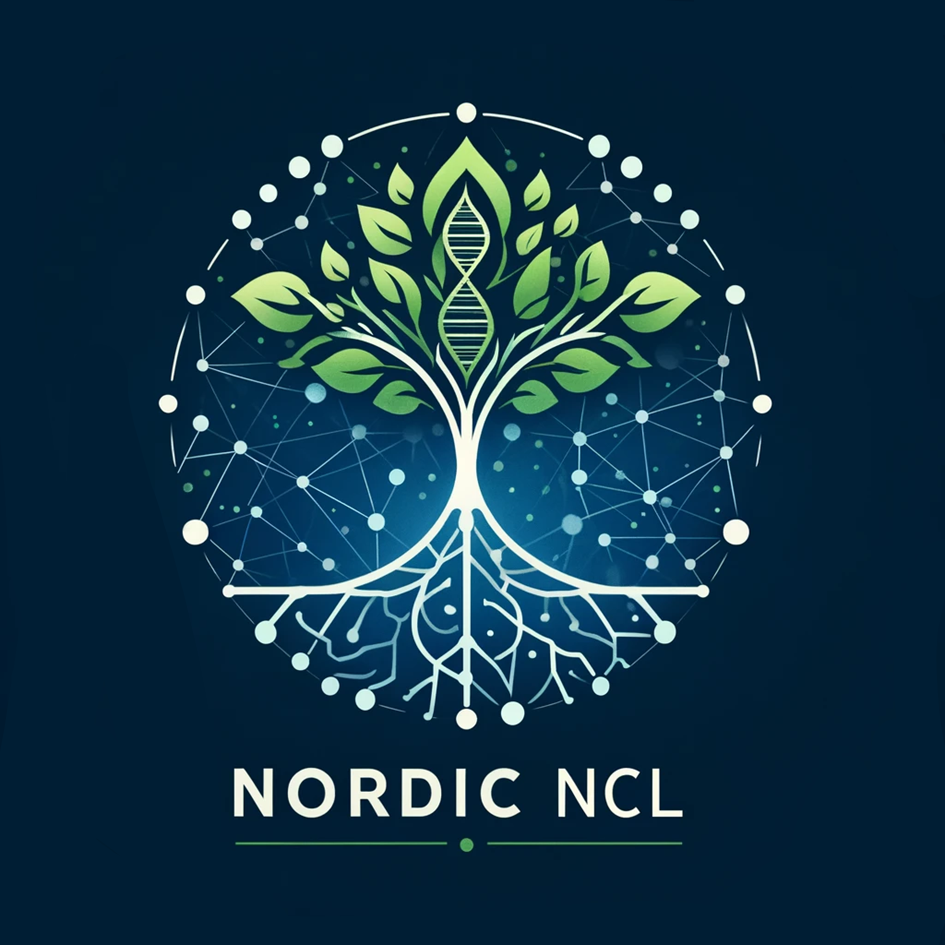
About us
NCL = neuronal ceroid lipofuscinosis, refers to a group of disease conditions that affect/dismantle the nervous system. Signs and symptoms vary greatly between forms, but generally include a combination of gradual (childhood) dementia, vision loss, and epilepsy. In Denmark, there are currently about 25 children with an NCL diagnosis.
The children with an NCL disease are born as normal children, but as time passes (period depending on the type of gene defect, but from the age of 1 up to the age of 8), they gradually lose their acquired abilities before dying at a young age, robbed of most of their functions. There are 14 different NCL defects, with NCL3 being the most common in the Nordic countries. The average life expectancy of NCL3 is 25 years.
NCL is a rare disease, with no current cure.
There are only very few global conferences where NCL diseases are in focus, and there is no Nordic or European forum, for neither parents nor the many different professionals who work around the patients and their families. The goal of Nordic NCL is to establish, maintain and expand a Nordic forum for patient associations and different types of professionals within NCL primarily to:
- Create close Nordic co-operation across both professionals and families affected by NCL
- Raise awareness of potential therapies/approaches (educational, therapeutic, medical, etc.)
- Raise awareness of childhood dementia
- Spread knowledge about the disease
- Improve the quality of life for the child and the affected families
- Focus on the best strategy in the different phases of the disease
- Learn from the world around us
Nordic NCL is hosted by NCL Danmark, the parent association in Denmark for affected children.
Communities
The communities around the affected children are very small, and knowledge is often very local. This Nordic conference aim to bring together both patient associations and professionals from the Nordic countries who work with children affected by NCL. Professionals may include neurologists, psychiatrists, researchers, educators, therapists, psychologists, educators, etc., for mutual update on projects and possible therapies/approaches, also from outside the region.
For the children and families affected by this disease, a conference like this will raise awareness of the disease, but most importantly, it will increase knowledge about potential therapies/approaches/best practices to manage this disease across different professional groups. In such a small group of diseases, information is limited and difficult to get, as many professionals around this disease see only 1 or 2 patients.
Knowledge is important when preparing for what the next challenge is in the course of the disease, and to get to know what has been successful for other families further down the course. Being able to support the child with specific help at the exact time when help is needed increases the need for awareness before the need arises. Otherwise, as many examples have shown, the necessary support for the child comes far too late, and the disease has already taken several skills away from the child.
So, knowing more about "who/what is out there" and having a network to draw upon is very valuable. For the professionals, it is an invaluable source of sparring, both with professionals from their own industry, but also with other professionals. The conference invites foreign guest lecturers to give insight into what is going on elsewhere in the world. The hope is to be able to establish a Nordic forum that meets once a year, for mutual inspiration, e.g. on successful or upcoming therapies/approaches, to present ongoing research, also in the Nordic countries, etc. The forum should also lay the foundations for cooperation between the various professionals for the benefit of children and their families.
Conferences
The conference was kick-started on the back of a collaboration between doctors and patient associations in Dk, No and Se, which was established in 2021. After 1.5 years of quarterly meetings, the first conference with only a small group of doctors and parents went live in November 2022 with great success, demonstrating the need for and interest in such a forum.
In 2023, the conference was expanded to also include non-medical professionals from the Nordic countries who work with affected children. In addition, participants from Finland were also included, so there was a total of 54 participants, 50% parents and 50% professionals, from doctors and brain researchers, to psychologists, educators, etc. There has been great interest from many sides, also from other countries in Europe, and we therefore expect the conference to grow.